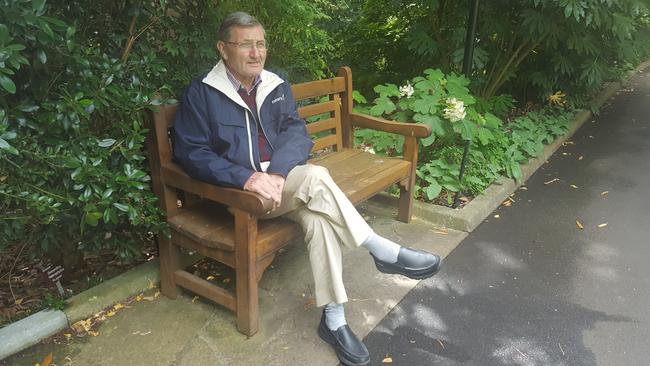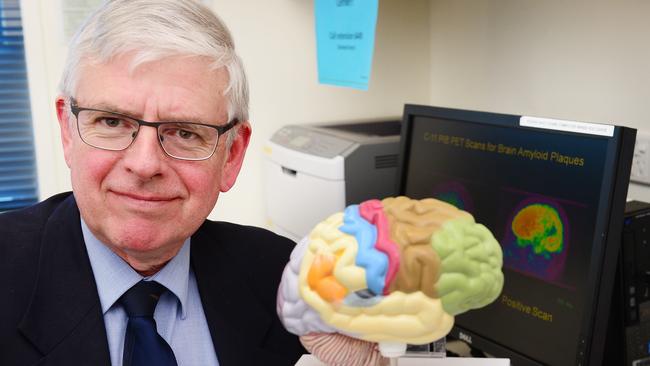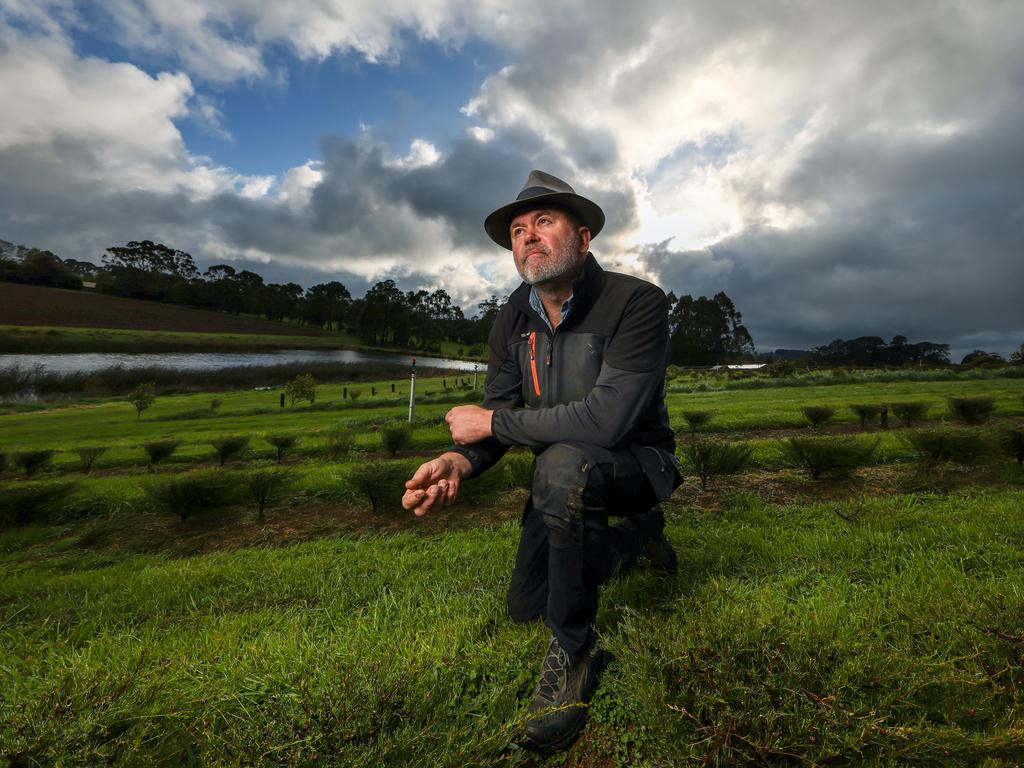Alzheimer’s patients losing ‘richer’ working lives, report finds
Lost productivity has outstripped the cost of aged care as the biggest price paid for from Alzheimer’s in Australia – but it shouldn’t have to be this way.

New figures indicate Australia’s growing population of Alzheimer’s patients carries a higher price in lost productivity than in aged and assisted care needs, with many arguing they are prematurely pushed from useful careers.
Research commissioned by advisory group Evohealth found that 50,000 Australians diagnosed early with Alzheimer’s wanted to remain working, despite the condition, and could do so with appropriate treatment.
Currently, patients’ aged-care costs are estimated at $2.4bn, compared to $3.7bn estimated to be lost in productivity.
The report, Diagnosis to Dignity, will be presented in parliament on Wednesday and it outlines the shifting demographic of Alzheimer’s patients and the economic effect.
When Geelong surgeon John Roth was diagnosed with Alzheimer’s at 69, it meant the end of his career and that of his wife, Cathy Roth, who became his full-time carer.
She soon became frustrated with the insufficient care opportunities for workers leaving complex careers after a diagnosis.
“I took John to an activity centre and they had him rolling a ball down a gutter,” Ms Roth said. “He rang me after I dropped him off and said ‘Get me out of here’. When we came home and sat down, he watched a show on Stephen Hawking and his theories.
“I figured I needed to keep his brain active, and if he was feeling that, so were others coming from high-functioning roles.”

It prompted Ms Roth to form the Professionals with Alzheimer’s (PALZ) support network to cater for people such as her husband. “We’ve got engineers of all sorts … we’ve got lawyers, we’ve got business people, we’ve got accountants, doctors,” she said.
“(They are) people who come from such an incredible range of high-intensity roles, who understand strategic thinking, who understand the advantages of looking at things in overview, and who are actually able to talk about the impact of their disease as an inconvenience rather than something that defines them.
“The fact they’re not defined by their disease means that they live life in a far richer vein.”
She said Alzheimer’s patients weren’t sufficiently supported in transitioning out of work.
“There is an expectation that someone is either competent or incompetent,” she said. “There are many people at the early stage of the disease who are absolutely so sharp, intellectually, yet having been given a diagnosis, there is a social allocation of the stigma of incompetence.
“People like doctors and lawyers ... they have to stop work straight away, regardless of the fact that they are still competent.”
The Evohealth research indicated the total Alzheimer’s caseload was set to rise from between 318,000 and 477,000 in 2024 to reach 590,000 to 885,000 by 2050. In the same period, the estimated economic burden would rise from $8.1bn to $17bn.
Dementia Australia adviser Michael Woodward said advances in detection and treatment of Alzheimer’s made the condition more manageable than ever, but social attitudes were failing to catch up.
“Many people in the early stages of Alzheimer’s can still work. I’ve got airline pilots who are still commercially flying planes with the very early stages of dementia illnesses, including Alzheimer’s disease,” Dr Woodward said.

“It would be even better to diagnose them early enough to slow down the progression, or even prevent the progression of the symptoms so that they could continue to work.”
Also contributing to lost productivity is the carer burden, with partners and loved ones often leaving behind careers to take care of cognitively impaired family. It was estimated a third of primary carers could return to work with an overhaul of the national dementia strategy.
“We need … to make services more dementia-friendly. We’ve done it with people who have physical disabilities – you’ve got wheelchair ramps everywhere, whereas there were hardly any around when I was young,” Dr Woodward said.
The report indicated delaying entry into aged care would improve patient outcomes, indicating quality of life was 25 per cent higher if patients could remain in their home for another 12 months. It was also estimated to save up to $48m for the federal health budget.
The National Dementia Action Plan was originally due in May 2024; a Department of Health spokesperson said it was now set to be handed down later this year.
“It will set a vision for Australia to be more dementia inclusive and where all people impacted by dementia can access support that meets their needs, including supporting people who are still active in the workforce,” they said.







To join the conversation, please log in. Don't have an account? Register
Join the conversation, you are commenting as Logout